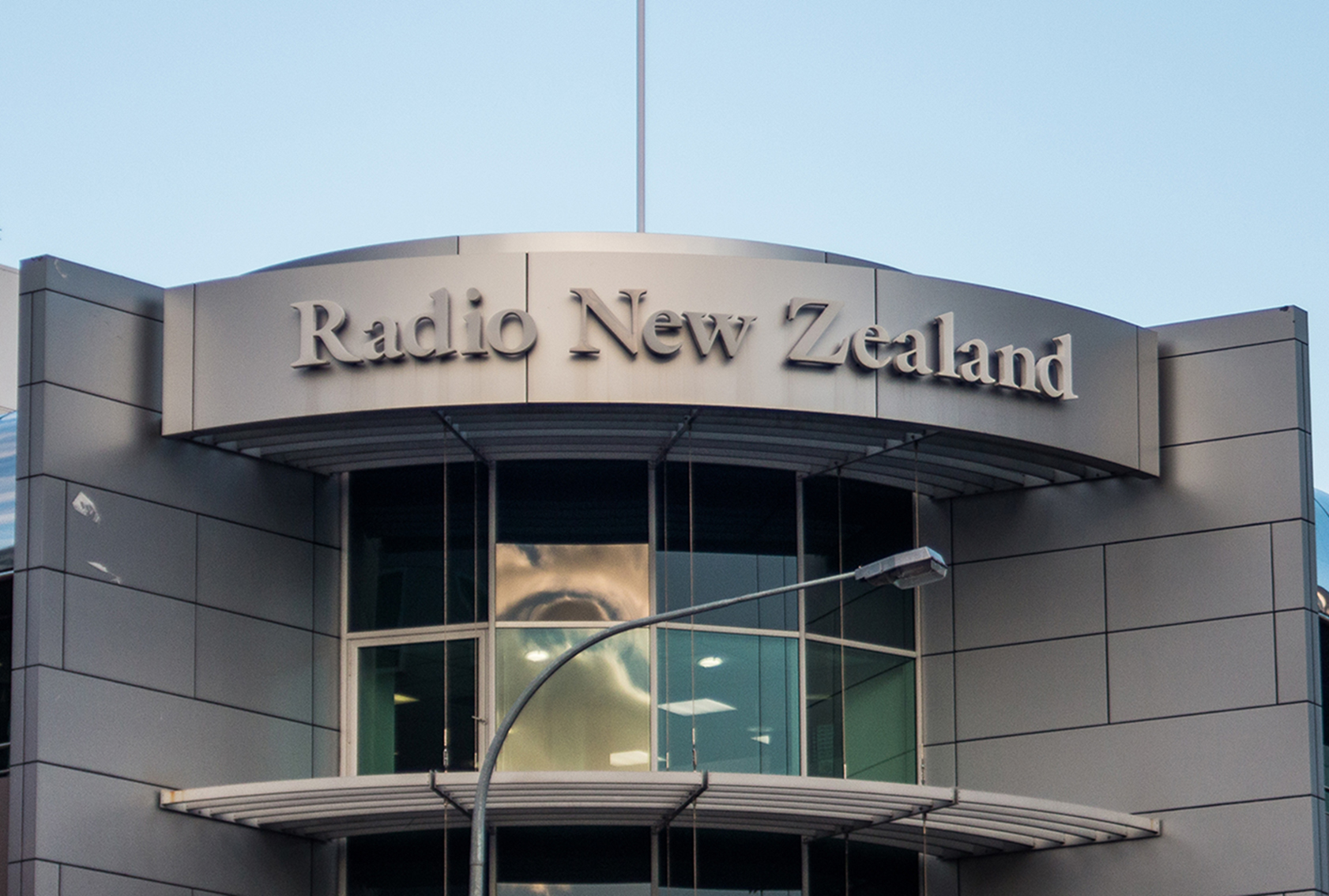
Craig Robertson
AUCKLAND (Te Waha Nui / Pacific Media Watch): Radio New Zealand is desperate for funding and will only able to maintain its broadcasting standards for another 12 to 18 months before it starts to “suffer quite significantly”, according to communications manager John Barr.
The public broadcaster’s funding has been frozen since 2008 and Barr says RNZ has had to sell land and grand pianos to get by.
“We’ve found ways of improving our revenue and cutting costs and that’s been one of the key reasons that we’ve been able to manage our way through the funding freeze,” he says.
Despite the freeze, Radio New Zealand remains the country’s most popular radio station, according to a 2013 Nielsen survey.
A 2013 Colmar Brunton poll also found 77 per cent of New Zealanders agreed Radio New Zealand provided a valuable service and 86 percent agreed it was important to have a public service broadcaster.
Barr says the broadcaster has maintained its high standards during the funding freeze but times are getting tougher as RNZ moves into the digital environment.
“For us, the priority at the moment is moving into multiplatform broadcasting. The media environment both here and internationally is increasingly moving into that multiplatform, multimedia environment and that is our strategic, long-term goal. How we do that, particularly if we don’t get additional funding, is going to be difficult,” says Barr.
'Last legs'
The Coalition for Better Broadcasting (CBB), an organisation formed on the back of the Save Radio NZ and Save TVNZ 7 campaigns, is calling for a funding increase.
Chief executive Myles Thomas says Radio New Zealand’s performance shows how valuable it is and the broadcaster deserves a funding injection.
“They are really on their last legs in terms of what they are able to achieve with the current budget.
“This is what we’re hearing trickling through from contacts within the organisation,” he says.
“Radio New Zealand is the most popular radio station in New Zealand. It fulfils its role admirably and it really deserves to be rewarded for that.”
Thomas says Radio New Zealand’s funding needs to be inflation-proofed at least, and it should receive the funding recommended by a 2007 independent audit by KPMG.
“The KPMG report revealed that Radio New Zealand was under-resourced, underfunded, understaffed, for its purpose, which is to serve public service radio to New Zealanders.
“What we’re recommending in all is an increase of around $10 million per year for Radio New Zealand’s funding. So it’s currently receiving $31 million a year. We’d like to see that rise to $41 million.”
Warning to government
Labour broadcasting spokesperson Kris Faafoi says the call for funding comes as a warning to the government.
At a select committee financial review last week, Faafoi was told by Radio New Zealand that the broadcaster was getting close to breaking point.
“They’ve had their budget frozen for the last six years but have also had to try and adapt to the changing media market and keep up its quality and values around public broadcasting. That’s not easy to do. But to be fair to the management, they’ve done quite a good job of that. But as they said today, they are getting very close to the fact that they can’t cut anymore,” says Faafoi.
He says Labour is committed to public service broadcasting and that Radio New Zealand needs to be resourced to face the challenges of the digital media environment.
“The message that came through from Radio New Zealand was that they want to prepare for the challenges that digital technology puts before it. But the financial constraints that they have been under for the last six years is taking them to the edge and if they don’t find another revenue stream soon they are going to have to cut back on their core work.”
Thomas says holes are starting to appear in Radio New Zealand’s news coverage, with the broadcaster being unable to cover some regions.
“I think some of the regions don’t have individual reporters now. It just means a downgrading in the news-covering ability of Radio New Zealand and I think that it’s vital that it’s recognised immediately rather than waiting another 12 to 18 months.”
Faafoi says Labour is disappointed by National’s 2008 funding freeze decision and their approach to public broadcasting.
“[Public broadcasting] is not a priority for them, which is a shame,” says Faafoi.
“Making sure that there is good quality public broadcasting in New Zealand is beneficial for everyone. You’ve got make sure that there’s fearless independent journalism and I think that Radio New Zealand does a really good job of that.
“We want to make sure that there’s quality, innovative, efficient public broadcasting in New Zealand,” he says.
Neither Faafoi nor Barr say they expect to see an increase in funding in the Budget, which the Minister of Finance, Bill English, will present to Parliament on Thursday.
Craig Robertson is a Post-Graduate Diploma in Communication Studies student journalist at AUT University.
This work is licensed under a Creative Commons Attribution-NonCommercial 3.0 New Zealand Licence.




